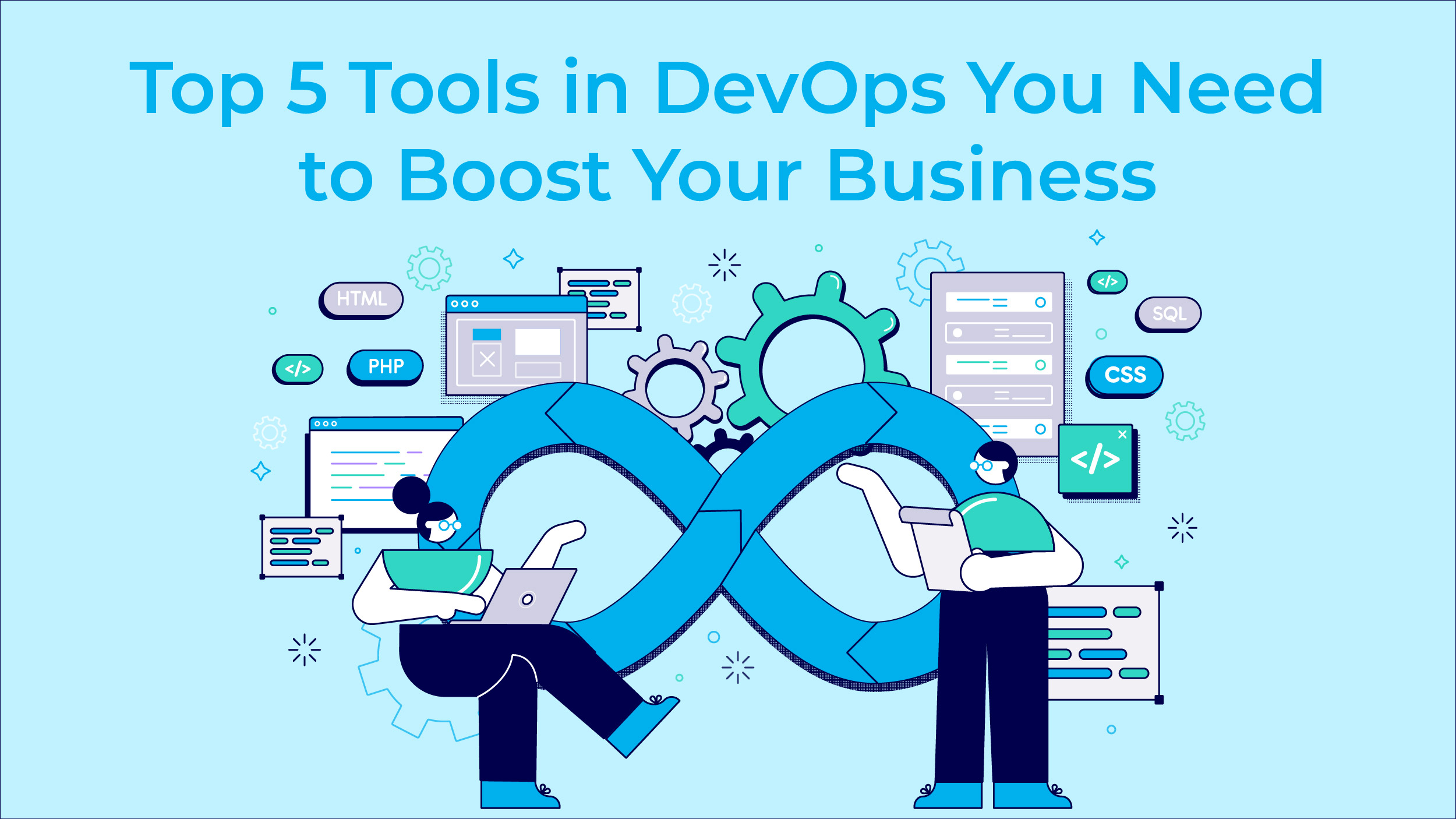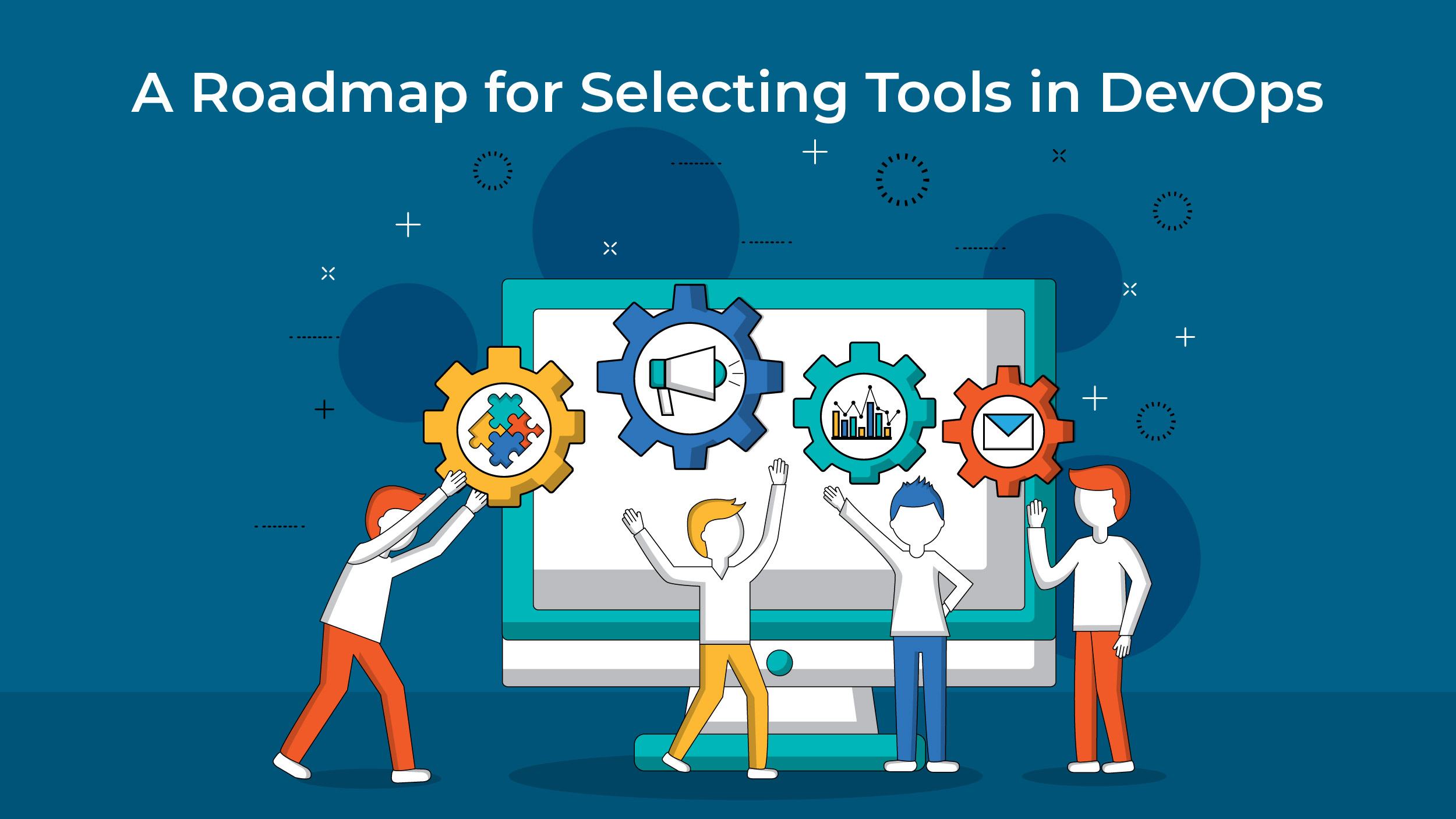Have you encountered an application that runs sluggishly and experiences frequent malfunctions? It can be quite frustrating and hinders productivity. However, the real challenge lies in not having a clear solution for rectifying this sluggish performance. Ensuring seamless and bug-free communication between management processes and execution is crucial for satisfying customers. Top DevOps tools play a pivotal role in alleviating the chaos in management. It’s imperative for companies and manufacturers to embrace the finest tools in DevOps that enhance efficiency and productivity.
What are the Tools Used in DevOps?
DevOps, a collaborative approach that combines development and operations teams, relies on a plethora of specialized tools to streamline processes, enhance efficiency, and improve overall software delivery. Here, we’ll delve into three crucial categories of tools used in DevOps: Monitoring, Deployment, and Automation.
● Monitoring Tools in DevOps
Monitoring tools play a pivotal role in the DevOps lifecycle by providing real-time insights into the performance and health of applications and infrastructure. They ensure that issues are identified and resolved promptly, contributing to a seamless operational environment.
● Deployment Tools in DevOps
Deployment tools automate the process of releasing and updating applications, ensuring that code changes are delivered reliably and consistently to various environments.
● Automation Tools in DevOps
Automation is at the heart of DevOps, enabling teams to reduce manual intervention, minimize errors, and accelerate the delivery of high-quality software.
Top 5 Tools in DevOps You Need to Boost Your Business
 DevOps tools assist organizations in overcoming several problems associated with implementing DevOps practices in real-time. We have listed some of these tools that enhance the Software Development Life Cycle (SDLC) process.
DevOps tools assist organizations in overcoming several problems associated with implementing DevOps practices in real-time. We have listed some of these tools that enhance the Software Development Life Cycle (SDLC) process.
1. GitHub
GitHub is widely regarded as one of the world’s largest and most advanced development platforms. On GitHub, millions of developers and businesses develop, deploy, and administer their software.
This distributed Source Code Management (SCM) solution is used to track changes in software development files and to effectively coordinate work among programmers. Its goal is to improve non-linear, distributed workflows’ speed, support, and data integrity.
Features
- Collaborative Coding
- Automation / CI & CD
- Security including additional features for corporates
- Project Management
Also Read: Podcasting 101: How to Start Your Own Podcast and Succeed
2. Ansible
Ansible is a free and open-source DevOps solution for deployment, orchestration, and automation. While Ansible employs infrastructure as a code architecture, its push nodes are connected via SSH, making it agentless.
It simplifies software development automation throughout its entire lifecycle as one of the most well-known DevOps solutions on the market. Michel DeHaan built it in Python, Shell, Ruby, and PowerShell.
Features
- Collaborative Coding
- Automation / CI & CD
- Security including additional features for corporates
- Project Management
3. Kubernetes
Kubernetes is a prominent container orchestration platform and an open-source tool in DevOps for automating the deployment and administration of containerized applications.
Kubernetes, being one of the top DevOps automation solutions, is ideal for applications with a large number of containers. It enables developers to logically segregate and package container clusters for deployment across many servers.
Features
- Facilitates service traffic routing according to cluster topology
- Original IP addresses, single DNS name for Pod sets
- Local to Public storage options such as AWS or GCP
- Allocates IPv6 & IPv4 addresses to services and Pods
4. Splunk
Splunk employs predictive streaming analytics to monitor infrastructure performance at the cloud scale in real-time. It uses a web-like interface to search, monitor, and analyze machine-generated big data. It lets you discover, group, break down, and investigate systems, services, and clouds automatically.
Features
- Facilitates service traffic routing according to cluster topology
- Original IP addresses, single DNS name for Pod sets
- Local to Public storage options such as AWS or GCP
- Allocates IPv6 & IPv4 addresses to services and Pods
5. Puppet
This automation tool in DevOps enables management of various software lifecycles stages such as IT infrastructure provisioning, patching, and software component and OS configuration and management across cloud infrastructures and data centers.
Features
- Automate and simplify critical manual tasks by extracting configuration details
- Effective scaling ability in diverse environments
- Commercial license offers out-of-the-box reporting, node management, orchestration, product support, and access control
A Roadmap for Selecting Tools in DevOps
 Selecting the appropriate DevOps tools isn’t a one-size-fits-all endeavor. No single tool or vendor can encompass all the functionalities required to bolster a DevOps practice and pipeline. However, there are crucial aspects to contemplate when determining the tools and products that align with your organization’s unique needs and specific DevOps objectives. These objectives are contingent on factors such as the organization’s structure, operations, and environment.
Selecting the appropriate DevOps tools isn’t a one-size-fits-all endeavor. No single tool or vendor can encompass all the functionalities required to bolster a DevOps practice and pipeline. However, there are crucial aspects to contemplate when determining the tools and products that align with your organization’s unique needs and specific DevOps objectives. These objectives are contingent on factors such as the organization’s structure, operations, and environment.
Consider the following factors when making tool selections for your project or organization:
● Application and Technology Infrastructure:
Understand your application and software platforms, as well as the infrastructure technologies that underlie them. Can the tool seamlessly operate with applications and infrastructure across cloud, local, or hybrid environments?
● Developer Process Integration:
Can the tool integrate smoothly with your existing development tools, Integrated Development Environments (IDEs), and Application Lifecycle Management (ALM) or project management platform?
● Open and Broad Integration:
Does the tool in DevOps have the capacity to integrate with various technologies within the pipeline? This includes testing frameworks (e.g., Selenium, TestNG, Jest, JUnit, Mocha, etc.), communication platforms (e.g., Slack, Teams, etc.), project management systems (e.g., Jira), and Continuous Integration & Continuous Deployment (CI/CD) tools (Jenkins, CircleCI, GitHub).
● Ease of Use and Scalability:
Ensure that your team can quickly learn and implement the tool. Additionally, verify that the tool can scale as your team’s skills advance and your organization expands.
● Licensing vs. Cost Models:
Evaluate whether the tool is open-source or commercially licensed. Take into account costs beyond just licensing fees. While free tools might not have licensing costs, they could be expensive in terms of resources needed for deployment and maintenance. Clear and transparent licensing combined with an honest approach to non-license-related operational costs simplifies planning and eliminates future obstacles in deploying your DevOps pipeline across various projects and teams.
Summing it Up
The arsenal of tools in DevOps is nothing short of a technological marvel. From version control systems to continuous integration and deployment platforms, each tool plays a vital role in streamlining processes, enhancing collaboration, and ultimately driving efficiency within development and operations teams. By leveraging the right combination of these tools, organizations can not only accelerate their software delivery pipelines but also ensure higher quality and reliability in their products and services.


Comments are closed.